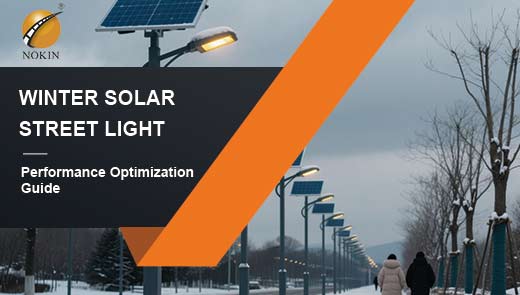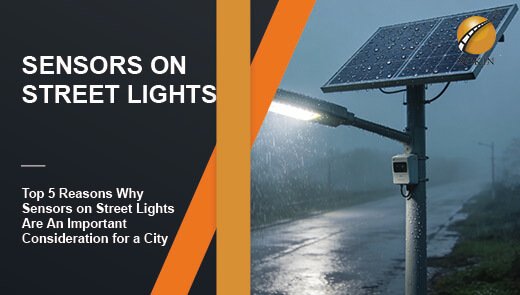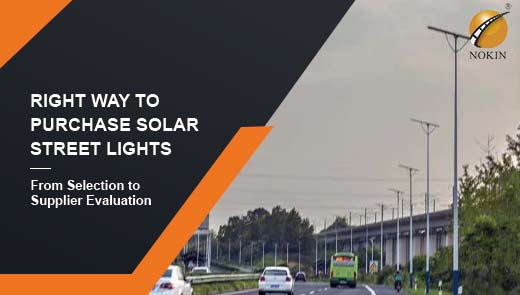How to Choose a Commercial Solar Street Light Provider
Commercial solar street lights have become the mainstream lighting choice for municipal roads, industrial parks, commercial plazas, campuses, and other settings due to their long-term energy savings, low maintenance costs, and zero-carbon emissions. However, realizing these advantages often hinges on selecting the right supplier.
Opting for inexperienced small workshops or unqualified manufacturers not only undermines the core values of energy efficiency and low consumption but also risks frequent failures within 1-2 years of use, widespread damage during extreme weather, and unresponsive after-sales support. This ultimately leads to the passive situation of “saving a little money upfront, only to spend a lot later.” Therefore, mastering a scientific approach to supplier selection is crucial for the success of commercial solar street light projects.
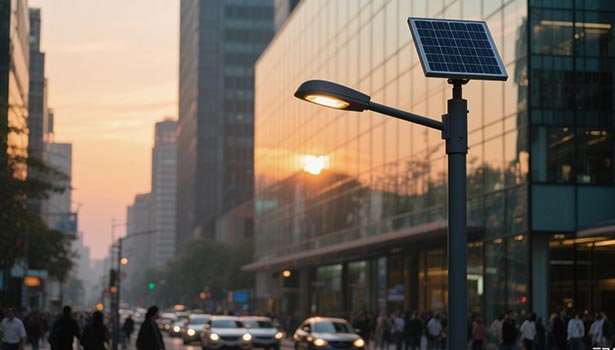
What to look for in a commercial solar street light provider
Experience and expertise
Commercial solar street lighting demands specialized solutions—for instance, municipal roads require 10 consecutive hours of high brightness, while industrial parks must account for building obstructions. Prioritize manufacturers with over 10 years of experience specializing in commercial applications, avoiding cross-industry small workshops. Request proven commercial case studies from large-scale parks or urban thoroughfares, not merely residential product demonstrations. Quality suppliers proactively inquire about site-specific conditions like sunlight exposure and required illumination duration, rather than offering lowball quotes.
Product quality and durability
Commercial street lights endure prolonged outdoor exposure, requiring resistance to rain, high temperatures, and strong winds. Light poles and housings should use ≥2.5mm corrosion-resistant aluminum alloy, avoiding spray-painted sheet metal (which rusts within 1-2 years). Solar panels must have ≥18% conversion efficiency and feature shatterproof glass to prevent inefficiency and damage. Batteries should be lithium-ion with ≥2000 cycle life, avoiding lead-acid batteries that degrade by 50% within one year. LED light sources require a CRI ≥70 and annual lumen depreciation ≤3%. Products must also meet IP65+ waterproofing standards and comply with local wind resistance ratings.
Energy efficiency
Commercial lighting projects operate long hours and cover extensive areas, making energy efficiency a direct driver of operational costs. Premium products utilize monocrystalline silicon solar panels, offering 2-3% higher conversion efficiency than polycrystalline silicon and increasing daily charging capacity by 15%. Integrated smart dimming systems enable dusk activation, late-night power reduction, and dawn shutdown, minimizing unnecessary energy consumption. LED components from leading brands like Philips deliver 20% greater energy savings than inferior LED at equivalent brightness levels. For a system with 100 lights operating 10 hours daily, high-efficiency products save approximately ¥12,000 in annual electricity costs.
Customization options
Commercial scenarios vary significantly: municipal applications require 12-meter tall poles, residential pathways need only 6 meters, parking lots demand wide-angle illumination, while scenic areas require warm light with glare prevention. Premium suppliers must support multi-dimensional customization: adjustable pole height, lighting power, and operational endurance; functional additions like motion sensors and remote monitoring; plus OEM/ODM services including logo printing and custom packaging to meet private-label client needs.
Warranty and support
Commercial street lights may serve over 10 years, making warranty and after-sales critical. Core components like solar panels, batteries, and LEDs should carry ≥3-year warranties, with ≥2-year coverage for the entire system. After-sales service must guarantee 24-hour technical support and 48-hour on-site repairs (negotiable for remote areas). Value-added services include complimentary installation guidance and annual battery inspections. Beware of suppliers offering only 1-year warranties or requiring upfront payment for service, as these lack long-term reliability.
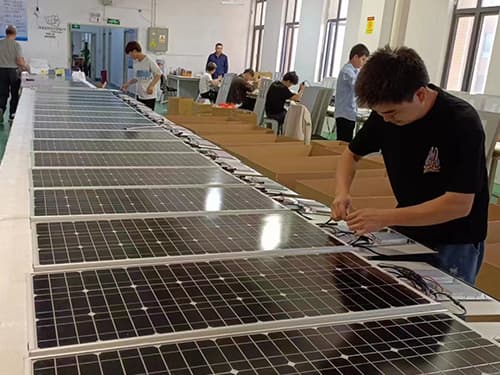
Cost and return on investment (ROI)
The initial purchase price of commercial solar street lights is higher than that of traditional street lights. However, when making a selection, one should not focus solely on this upfront expense but rather calculate the “total cost of ownership” from a long-term usage perspective. While traditional street lights have a lower initial purchase price, they incur ongoing electricity costs during operation. Additionally, due to the susceptibility of components to wear and tear, significant annual maintenance expenses are required, resulting in substantial cumulative cost pressures over time.
High-quality solar street lights, powered by solar energy, eliminate ongoing electricity costs. Their durable core components also result in significantly lower annual maintenance expenses compared to traditional lights. Reputable suppliers won't quote just a single product price; they'll help clients calculate the full life cycle ROI. Typically, compliant commercial solar street light projects recoup their initial investment within 2-3 years through savings on electricity and maintenance fees, with virtually no major additional costs thereafter.
Furthermore, professional suppliers provide transparent pricing structures, clearly indicating whether installation, customization, and related service fees are included. This prevents “hidden charges” later on, ensuring customers have clear visibility over long-term investments and truly achieve “reasonable upfront investment with sustained peace of mind and savings.”
Why choose NOKIN as your solar street light provider?
Reliable performance
NOKIN commercial solar street lights feature high-efficiency monocrystalline silicon solar panels, lithium batteries with a 2000-cycle lifespan, and LEDs with an annual lumen depreciation rate ≤3%, ensuring long-term performance reliability. For protection, products achieve IP67 waterproof rating—submersible in 1-meter water for 30 minutes—and withstand Category 12 winds, adapting to climates nationwide.
Customization services
NOKIN in-house R&D team provides product design services supporting OEM/ODM models. Customization options range from pole height and lighting power to logo printing and packaging design, fully meeting diverse commercial project requirements.
Source factory
As a direct manufacturer, NOKIN eliminates intermediary markups. Products are priced 15%-20% lower than distributors for equivalent specifications, delivering significant cost advantages. Quality control involves triple verification—extreme temperature testing, waterproof testing, and brightness decay testing—before each batch ships, ensuring consistent reliability.
After-sale service
NOKIN offers comprehensive warranty coverage: 3-5 years for solar panels, batteries, and LEDs, providing long-term assurance. Our dedicated after-sales team delivers complimentary installation design drawings and remote technical guidance. With over 30 service centers nationwide, we provide on-site repairs to promptly resolve operational issues.

4 practical steps for selecting a commercial solar street light supplier
Define a clear requirements list to avoid reactive communication
Organize core project information, including installation locations (e.g., municipal roads, industrial parks), coverage area, daily required lighting duration, and special functional requirements (e.g., motion sensors, remote monitoring). Pre-emptively outlining needs focuses discussions, prevents suppliers from steering you toward unsuitable products, and ensures subsequent solutions precisely match project requirements.
Preliminary screening to identify professional suppliers
Select 3-5 candidate manufacturers based on dual criteria: “Years in Business + Commercial Case Studies.” Prioritize companies with over 10 years of experience specializing in commercial solar street lighting, excluding small workshops focused solely on residential products or those entering the market as a side venture. Require submission of comparable commercial project case studies (e.g., urban thoroughfares, large-scale industrial parks) to validate their proven capability in serving commercial environments.
Request samples and test reports to verify product quality
Obtain product samples from candidates and demand authoritative test reports. Focus on verifying battery capacity, waterproof performance testing, and LED lumen depreciation to confirm core component parameters meet expectations. For projects with stringent quality requirements, submit samples to third-party institutions for testing to prevent issues like “inflated specifications” or “substandard quality” at the source.
Commercial solar street lights represent a long-term investment. When selecting suppliers, prioritize “experience, quality, and after-sales service” over merely “low price.” As a long-established original manufacturer, NOKIN delivers cost-effective products while offering customized solutions and professional after-sales support to eliminate concerns in commercial projects. Our expert team helps you avoid common purchasing pitfalls, ensuring your project's successful implementation.

